In 1985, when Father Ron Foshage arrived at St. Michael’s Parish in Jasper, Texas, he was already facing an uphill battle. Although the small town of about 8,000 residents was deeply Christian and boasted a staggering 54 churches, the Catholic population was a small minority. His parishioners were scattered across five different churches, some almost 100 miles apart. Far from receiving a warm welcome, the new resident in the Roman collar was often greeted with suspicion in heavily Protestant eastern Texas.
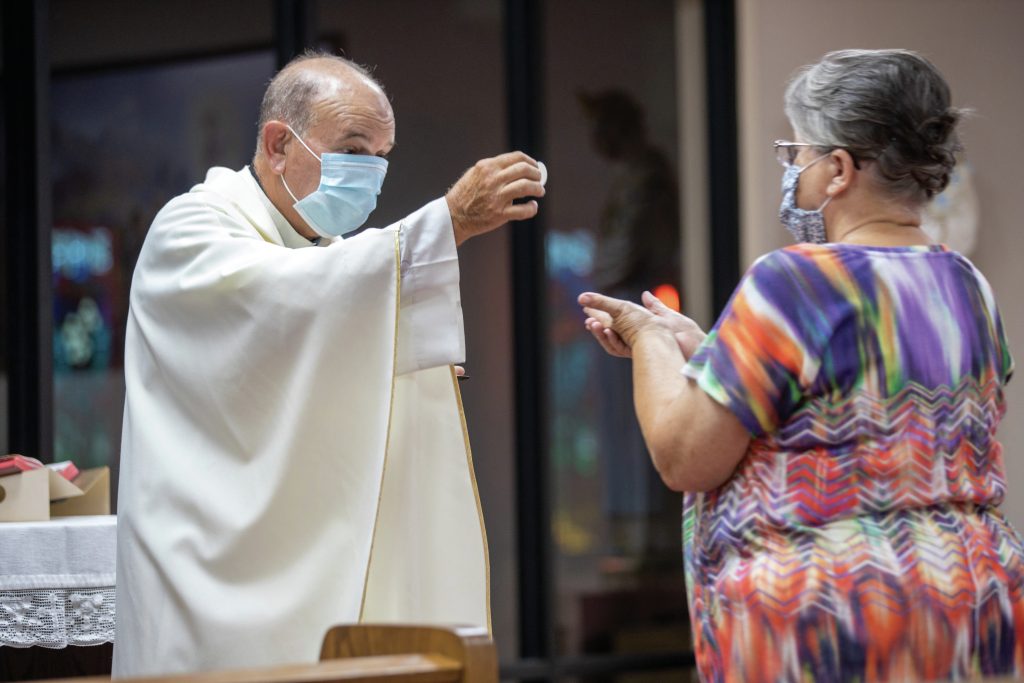
Inspired by Pope John XXIII’s exhortation for a deeper appreciation of ecumenism and Christian fellowship, Foshage was undeterred by his new situation. “I studied in seminary during the Second Vatican Council, when they really emphasized understanding other faiths and truly respecting them. So I studied the Methodist, Baptist, and Episcopalian traditions—the pastors were surprised how much I knew about their churches, both their history and their liturgies,” Foshage says. It wasn’t long before the priest was welcomed into Jasper’s Ministerial Alliance and began working with the organization to promote Christian unity in the small town. The organization established “Sing with One Voice,” an annual cross-denominational event in which choirs from every church gather at St. Michael’s for a concert.
Things were looking up in Jasper, until they weren’t.
Late in the night of June 7, 1998, a Black Jasper resident named James Byrd Jr. accepted a ride home from three young white men. Rather than take him home, however, the three men took Byrd to a remote location where they beat him, spray-painted his face, and urinated on him. They then chained him to the back of their truck by his ankles and dragged him for three miles. They dumped his body in front of a local Black church, where it was found later the next morning.
Within a day, three suspects had already been detained by the local sheriff. Rumors of the vicious hate crime had already begun to run rampant through Jasper. Sheriff Billy Rowles, who was leading the investigation, tasked the Ministerial Alliance with breaking the news to the town. According to Foshage, “The sheriff told us everything he knew, because he wanted us to tell the truth from the pulpits. He felt that our people would listen to us and believe us.”
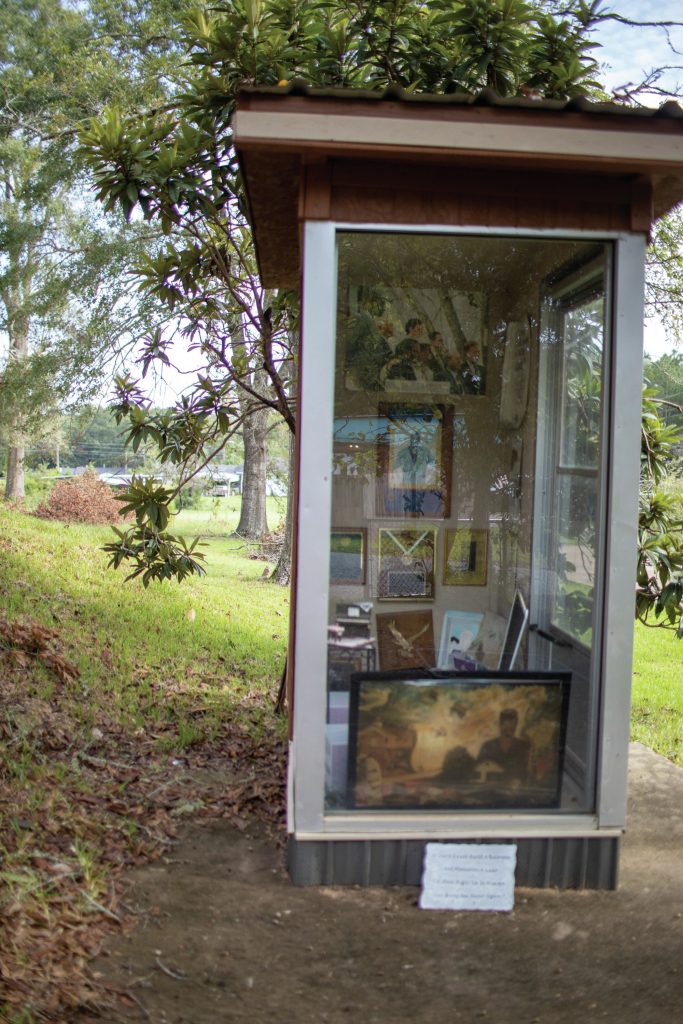
Foshage joined the Rev. Kenneth Lyons, pastor of the Greater New Bethel Baptist Church, which Byrd’s family attended, in a mission to heal the deep wounds in the community caused by the tragedy. “The alliance had been together many years before the crime. Our relationships with each other and with the whole community were the glue that kept us together,” he says. Foshage shares that Byrd’s father came to the Ministerial Alliance with a message that became the rallying call of their mission: “My family isn’t hating, we’re hurting. We want peace in this community.”
Byrd’s murder soon became national news, and the situation began to spiral out of control. Soon, the Ku Klux Klan and the Black Panthers had both descended upon the town square. “It was a terrible thing,” Foshage says. “We truly felt that they could burn the town down.”
“The ministers asked all the people in their communities to stay home, and we asked all the stores in the area to close down, and they did,” he says. “The sheriff told us afterward that it was a terribly frightening day for us. But out of the thousands of people the Ku Klux Klan and the Black Panthers brought in, only five of them were from Jasper. The Black Panthers came and told our Black community to arm themselves with guns and to march. Everybody was frightened. But it never happened.”
Foshage became a fixture in the courtroom, where he was faced with the balancing act of ministering to both Ronald King, the father of one of the accused, and Guy James Gray, the prosecuting attorney. King was an elderly man who attended St. Michael’s from time to time but was not Catholic. Gray was an active parishioner at St. Michael’s. Foshage would often find himself consoling a sobbing King while another member of his flock introduced chilling pieces of evidence against King’s son. “It was like walking a tightrope,” he says. A year after the trial, King converted to Catholicism.
In the years following the trial, Foshage continued his work of promoting reconciliation and racial justice. “Every once in a while, we still get requests to talk and share our stories, even though it’s been 22 years now,” he says.
We simply asked the Holy Spirit to give us what we needed.
Foshage’s testimony was also instrumental in ensuring the passage of the Matthew Shepard and James Byrd Jr. Hate Crimes Prevention Act, which became federal law in 2009. The act expanded the federal definition of hate crimes to include a broader range of violent acts and protect a wider class of victims. It also provided increased federal funding and technical assistance to state and local governments to help them more effectively investigate and prosecute hate crimes. “We were asked by the mayor to go to Austin, and we’d never spoken in front of politicians before so we were nervous, but we prayed beforehand,” Foshage says. “We simply asked the Holy Spirit to give us what we needed.”
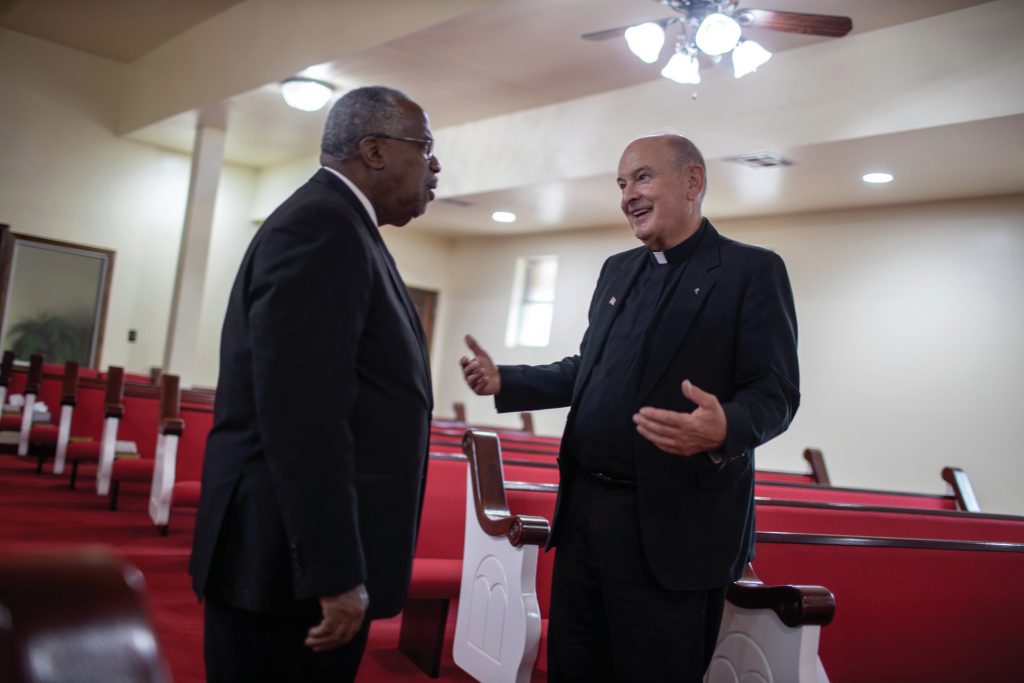
In early 2020, Jasper named Foshage their Citizen of the Year. In December 2020, he was awarded the Lumen Christi Award by Catholic Extension, a nonprofit organization that supports Catholic communities throughout the United States in need of resources to continue their missions. The award is given to an individual or group who “demonstrates how the power of faith can transform lives and communities,” according to Catholic Extension’s website. In the 2020 award ceremony, held remotely and broadcast live over YouTube due to the COVID-19 pandemic, Father Jack Wall, the president of Catholic Extension, said that the award “gives us an opportunity to take a closer look at what happens when people of faith are given resources to make a difference.”
In an interview with Catholic Extension following the announcement of his reception of the 2020 Lumen Christi Award, Foshage said that he was surprised: “I was overwhelmed with gratitude, but with deep humility. . . . When the bishop nominated me, I said, ‘Bishop, I’m not doing anything that any other priest in my situation [wouldn’t] have done.’ ”
In the last year, Foshage has found himself addressing a different kind of issue in Jasper. The population of the town has dwindled. Jobs are scarce. Scores of Jasper residents, many of whom are veterans, have become homeless and taken up residence in tents and other makeshift homes in the woods on the bank of a nearby lake. In response, Foshage has spearheaded an initiative to build a neighborhood of tiny houses for those affected by homelessness. The land for the project was donated by a housing assistance program from a nearby town. So far, the project has completed one of the homes, with about a dozen more on the way.
When the bishop nominated me I said, “Bishop I’m not doing anything that any other priest in my situation wouldn’t have done.”
Advertisement
The scars left by Byrd’s murder have not disappeared from the town. One of the reasons that the town’s economy continues to dwindle, says Foshage, is that Jasper acquired a reputation for hate and racism following Byrd’s death, and decades later that reputation is still difficult to overcome. Businesses are wary of opening new locations in the area. Just recently, a company was considering moving to the area, but, according to Foshage, was reluctant. “I had to tell the president,” he says, “that we weren’t who they think we are.” The company has since opened a building in Jasper, which employs 300 local people.
In the wake of the death of George Floyd and the nationwide Black Lives Matter protests that followed it, the events in Jasper in 1998 seem to have taken on a new significance. Some might wonder if the example set by Foshage, Lyons, and the residents of Jasper can inspire other communities struggling to overcome injustice and seeking healing and reconciliation. According to Foshage, this might prove difficult, as a key element that helped bring the town together was that “our community and our ministers knew one another well, and we trusted one another. You can’t really do that in Chicago.”
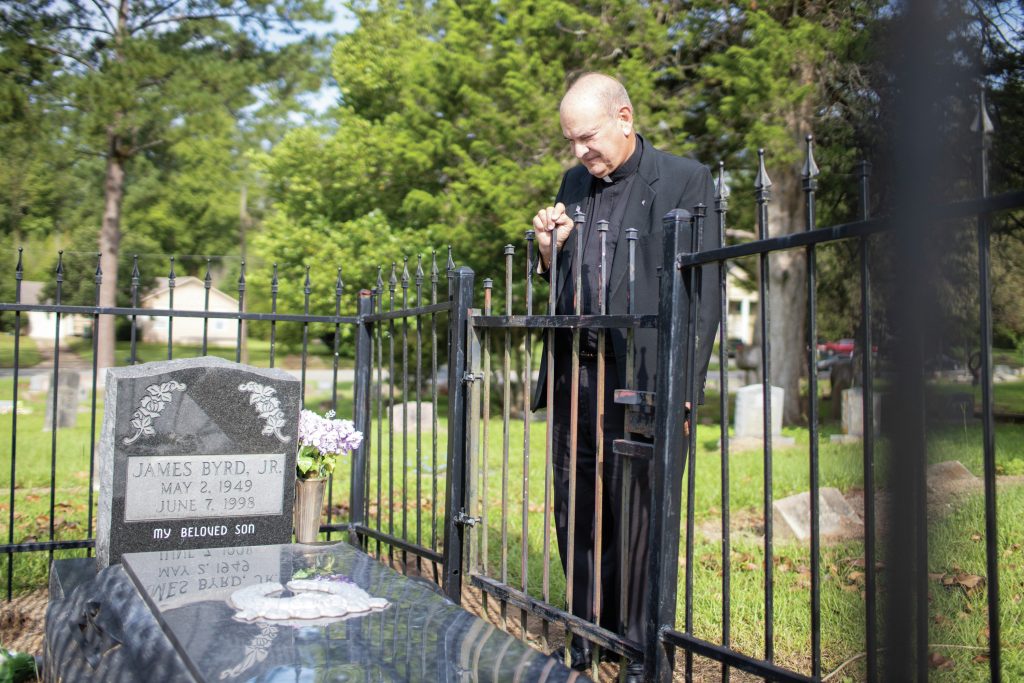
He does have one piece of advice for communities grappling with these issues: pray. “I don’t see enough people stopping to pray first,” he says. “Before everything we did, we formed a circle, we held hands, and we prayed for quite a while. The sheriff would begin all of our meetings with prayer, and he always said that God took us by the hand and guided us. I really think God told us what to do.”
This article also appears in the March 2021 issue of U.S. Catholic (Vol. 86, No. 3, page 10-16). Click here to subscribe to the magazine.
Images: Courtesy of Rich Kalonick/Catholic Extension


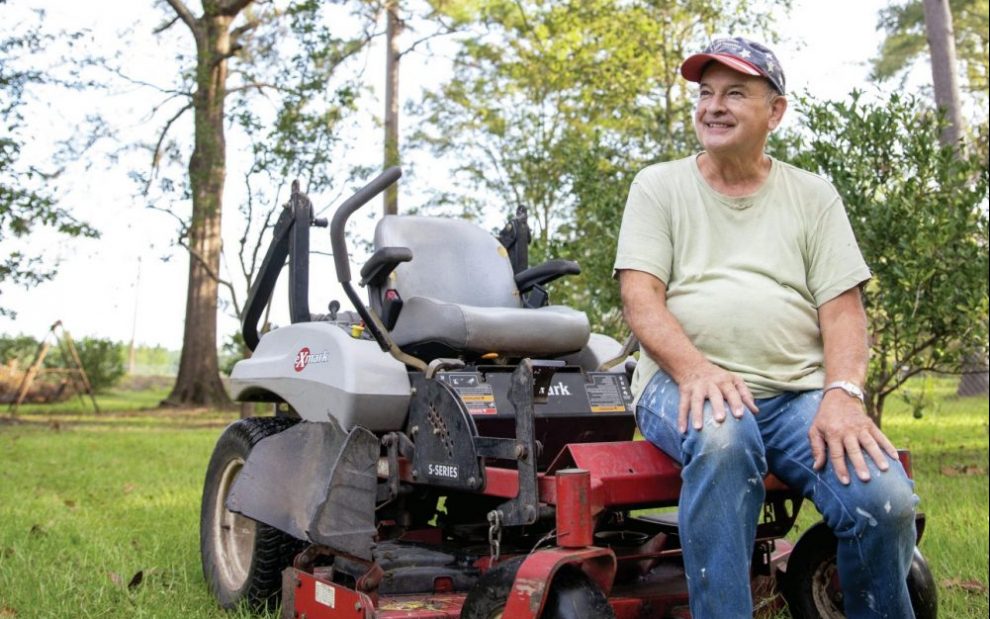












Add comment